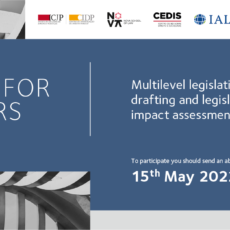
This article published in The Theory and Practice of Legislation discusses the coronavirus crisis legislation in Belgium, against the background of a political crisis. It raises the questions how a minority government could find legitimacy to take drastic measures that impact upon fundamental rights and how the political crisis impacted the position of Parliament.
The article focus is on how the federal government was able to act in the absence of (structural) majority support, and the implications for representative democracy.
It is emphasized that most government decisions were based on expert advice, and experts also took care of most of the crisis communication. This was also the case elsewhere, but, arguably, experts were relied on more heavily in Belgium in order to de-politicize decisions and find the support of ten ideologically very disparate political parties.
The article was written by Dr. Patricia Popelier, vice-president of the International Association of Legislation (IAL), professor at the law faculty of the University of Antwerp.
Read the article here.





